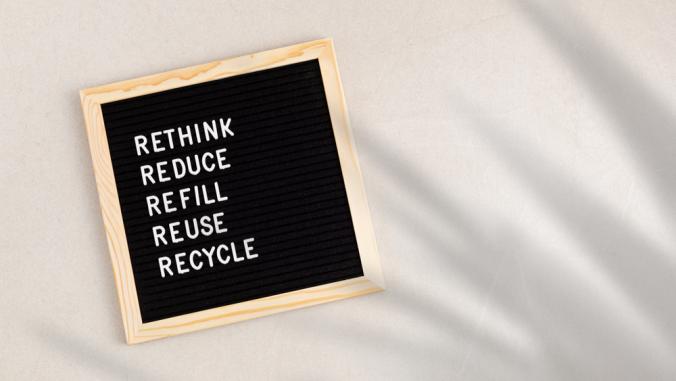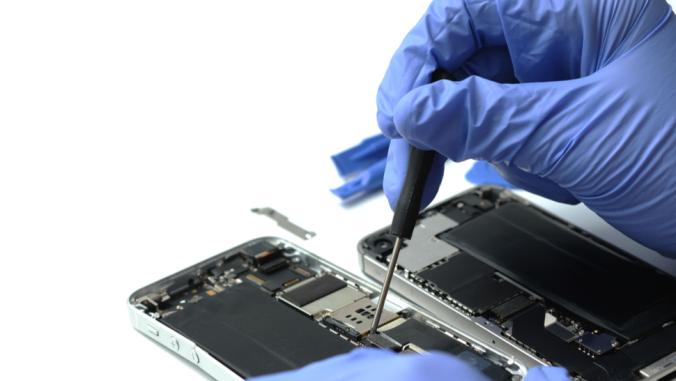Can Big Chemical end plastics pollution?
Dow, BASF, ExxonMobil, Chevron Phillips and DSM have pledged to fight plastic waste across the value chain.

This article is drawn from the Circular Weekly newsletter from GreenBiz, running Fridays.
Nearly 30 companies announced a collaboration last Wednesday to invest as much as $1.5 billion over the next five years to help stem the flow of plastics pollution.
It’s an interesting consortium, to say the least, representing stakeholders from across the global plastics value chain — chemical and plastic manufacturers, consumer goods companies, retailers, converters and waste management firms. The Alliance to End Plastic Waste is committed to deploying scalable solutions to reuse, recover and recycle plastics and keep debris out of the ocean.
The alliance’s founding signatories include Dow, BASF, ExxonMobil, Chevron Phillips, DSM and other chemical and plastics manufacturers, as well as two big branded companies — Henkel and Procter & Gamble; the latter’s CEO, David Taylor, is chairing the group. It’s not just about throwing big bucks at the problem. Member companies have committed to leveraging their respective technical resources as well.
The alliance wants to make its investment count, and the initiative is zeroing in on regions with high "leakage," the industry’s term for plastic that ends up in the environment. According to estimates, nearly 80 percent of plastic waste in the ocean begins as litter on land, 90 percent of which travels to the sea via 10 major rivers around the world (eight in Asia and two in Africa).
The initiative has four core areas:
Infrastructure development to manage waste, increase recycling and establish end markets for post-use plastics.
Incubate and scale innovation to advance new recycling and recovery technologies and process plastics for future uses.
Engagement and education with governments, businesses and communities to collaborate and catalyze localized solutions, supported by the World Business Council for Sustainable Development and United Nations Environment.
Clean-up areas of concentrated plastic waste.
Beyond the obvious environmental benefit, these projects generate meaningful potential for local economic development in some of the world’s poorest communities. And, of course, there is a significant economic upside for the alliance members. "We think it’s a tremendous business opportunity, with more than double-digit returns," an executive from one of the member companies, who asked not to be identified, told my colleague Joel Makower this week.
The alliance is partnering with investment firm Circulate Capital and innovation agency SecondMuse to fund The Incubator Network, established to develop and promote technologies, business models and entrepreneurs that prevent ocean plastic waste, with an initial focus on Southeast Asia.Beyond the obvious environmental benefit, these projects generate meaningful potential for local economic development in some of the world’s poorest communities.
If you’ve been paying attention to the growing public attention to plastics pollution, it will come as no surprise that the Alliance to End Plastic Waste already has detractors. "This is a desperate attempt from corporate polluters to maintain the status quo on plastics," said Graham Forbes, global plastics project leader at Greenpeace, in a press release. He cited the alliance’s disregard for a holistic solution that decreases production of single-use plastics.
As usual, the debate centers around whether cleaning up the current mess and scaling solutions to turn that pollution into valuable commodities is good enough — or whether we need to ban single-use plastics altogether. But in favor of what? Greenpeace doesn’t exactly say. (Indeed, Greenpeace doesn’t promote an all-out ban, saying "the only surefire way to tackle the problem at the scale needed is to stop producing so much of it to begin with." Which begs the question: How much single-use plastic is permissible?)
"It’s not about plastics or the environment, it’s about plastics and the environment," said Jim Fitterling, CEO of Dow Chemical, during the alliance’s livestream announcement. (You can view the launch event on the alliance’s website.)
A billion dollars is a good chunk of change, but it’s hardly enough to fix the problem. A 2017 report (PDF) by Ocean Conservancy and McKinsey Center for the Environment found that it would cost $5 billion a year over six years to reduce the global leakage of plastics into the ocean by just 45 percent. So, the alliance’s sizable contribution is still only a piece of what’s needed to "make the dream of a world without plastic waste a reality," the alliance’s stated aspiration.
But let’s not make the perfect the enemy of the good. This is a major initiative that deserves watching. And, in the case of Greenpeace and its activist brethren, making sure that the alliance’s good intentions become reality.





